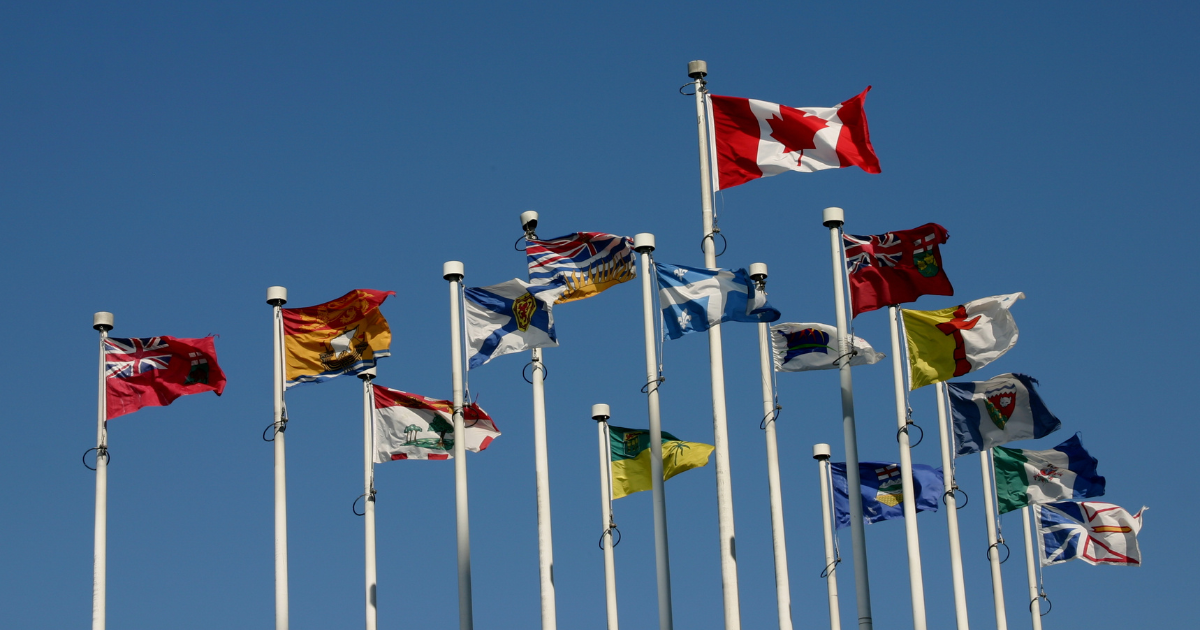Immigration to Canada : How to obtain a Provincial or Territorial Designation

Immigration to Canada can be a complex process, but the possibilities are numerous, especially with the option of obtaining provincial or territorial nomination. This route offers a unique immigration pathway that specifically targets the needs of each province or territory, attracting workers, students and entrepreneurs from different sectors and skill levels.
This article explores the process of obtaining a provincial or territorial nomination, the different avenues available, and how this fits into the broader framework of Canadian immigration.
What is a provincial or territorial designation?
Provincial or territorial nomination is a process by which a province or territory in Canada selects immigrants based on their skills, work experience and ability to contribute to the local economy. Each province and territory has its own Provincial Nominee Program (PNP) to meet its specific labour needs.
How do I obtain a province or territory designation in Canada?
Evaluation of eligibility
Before applying, it's important to check whether you're eligible for one of the PCPs. Eligibility criteria vary from one province or territory to another, and may include specific requirements in terms of work experience, language skills or ties to the province.
Preparing your application
Once you've found the PCP that best matches your profile, you can start preparing your application. This includes gathering all the necessary documents, such as proof of your work experience, language skills and any other documents required by the province or territory.
Application submission
Once you've prepared all the necessary documents, you can submit your application to the PCP in the province or territory of your choice. If your application is accepted, you will receive a provincial or territorial designation.
Application for permanent residence
Once you've received a provincial or territorial nomination, you can apply to the Canadian federal government for permanent residency. It's important to note that obtaining a provincial or territorial nomination does not guarantee permanent residency, but it may increase your chances.
Possible routes to provincial or territorial designation
Provincial Nominee Programs (PNP) are diverse and offer several routes to provincial or territorial designation. Here are some of the most common options:
Programs based on work skills
These programs are designed to attract skilled workers in specific occupations that are in demand in the province or territory. Candidates must generally have a job offer or work experience in a specific occupation to be eligible.
Programs for international graduates
Some provinces and territories have specific programs for international students who have graduated from a Canadian university. These programs recognize that international students who have studied in Canada already have ties to the country and are well placed to contribute to the economy.
Programs for entrepreneurs and investors
These programs are designed to attract people who intend to create, acquire or invest in a business in the province or territory. Applicants must generally demonstrate that they have the financial resources and business experience to succeed.
Programs for semi-skilled workers
Some provinces and territories offer programs for workers in semi-skilled occupations, such as food processing, trucking or certain hotel occupations.
Programs for people with a provincial connection
Some provinces have programs that give priority to people who already have ties to the province, such as having family living there, having already worked or studied in the province, or having a job offer from a provincial employer.
Each province and territory has its own programs with their own eligibility criteria, so it's important to do thorough research to find the program that best suits your situation.
The link between PCP and Express Entry
L'Express Entry is an online system used by the Government of Canada to manage skilled worker immigration applications. The Express Entry system brings together several immigration programs, including the Federal Skilled Worker Programthe Federal Skilled Trades Program and the Canadian Experience Class.
There is a close relationship between Provincial Nominee Programs (PNPs) and the Express Entry system. Indeed, most Canadian provinces and territories have an Express Entry component to their PNP, commonly referred to as Express Entry streams. The Express Entry components of PNPs enable provinces and territories to select candidates from the Express Entry pool to meet their local labour needs.
Here's how it usually works:
Create an Express Entry profile
To be considered in the Express Entry pane of a PCP, you must first create an Express Entry profile. When creating your profile, you'll provide information about your skills, education, language experience, work experience and other factors.
Notification of interest
If a province or territory is interested in your profile, they may send you a "notification of interest".
Apply for a PCP
Once you have received a notification of interest, you can apply to the PCP of the province or territory concerned.
Get a provincial designation
If your PCP application is approved, you will receive a "provincial designation".
Increase in CRS points
Receiving a provincial designation gives you an additional 600 points in the Express Entry Global Ranking System (GRS), which significantly increases your chances of being invited to apply for permanent residency.
Invitation to submit an application
Candidates with the highest CRS scores in the Express Entry basin are regularly invited to submit an application of permanent residence.
In short, obtaining a provincial designation through the Express Entry component of a PNP can be a valuable and efficient route to permanent residency in Canada.
How do I choose between an application for federal permanent residence and a provincial or territorial designation?
The decision to apply for provincial/territorial nomination or federal permanent residency depends on a number of factors, including your personal situation, skills and immigration goals. Here are a few things to consider:
Your profile and skills
If you have skills or work experience that are in high demand in a specific province or territory, applying through a Provincial Nominee Program (PNP) can increase your chances of immigrating to Canada. On the other hand, if your skills are in demand across Canada, you may want to consider applying directly at the federal level through the Express Entry system.
Your links with a province or territory
If you already have ties to a province or territory - such as family living there, a job offer, or if you've already lived, worked or studied there - it may be more advantageous to apply through that province's or territory's PCP.
Your living preferences
If you have a strong preference for living in a particular province or territory, applying through its PCP may be the best option. However, it's important to note that even if you are accepted through a PCP, you are not legally obliged to live in that province or territory permanently.
Time and resources
The processing times and costs associated with applying for permanent residency vary depending on whether you're applying federally or provincially. It may be helpful to compare the processing times and fees associated with the different options to determine which is most viable for you.
It is strongly recommended that you consult an immigration consultant or lawyer for advice tailored to your situation. They can help you understand the different options and choose the path best suited to your situation and immigration goals.
PCP: An alternative for low-scoring candidates in Entrée Express
Advantages of the PCP shutter
The Provincial Nominee Program (PNP) is often an excellent alternative for applicants with a low Global Ranking System (GRS) score on the Express Entry system. While Express Entry favors highly skilled workers, the PNP offers greater flexibility and can be a more accessible option for many applicants.
Criteria
Each province or territory has the power to define its own criteria for its PCP. This means that even if your GCS score is low, you may still be eligible for a PCP if you meet the specific requirements of the province or territory. For example, some provinces may give preference to applicants who have particular skills, work experience in a specific field, or ties to the province, such as family members.
Additional points
One of the key features of the PCP is that it offers an additional 600 points to the SCG for candidates who obtain a provincial nomination. This can significantly increase your total score and your chances of obtaining an invitation to apply for permanent residency.
Eligibility
It's important to note that eligibility criteria and the application process vary from province to province. Some provinces may have more flexible language requirements, while others may require a job offer from a local employer. So it's essential to research PCPs in different provinces and territories to find the one that best suits your situation.
In short, if you find it difficult to get an invitation to apply via the Express Entry system due to a low SCG score, the PCP could be an interesting alternative to consider.
Conclusion
In conclusion, obtaining provincial or territorial nomination can offer a viable and often less competitive alternative to direct federal immigration. Whether you're a skilled worker, an international graduate, an entrepreneur, or already have ties to a province or territory, the Provincial Nominee Program can provide you with a valuable pathway to permanent residency in Canada. With thorough research and a clear understanding of your own goals and circumstances, you can find the path that best suits you to realize your Canadian dream.
Obtaining a provincial or territorial designation in Canada can be achieved through several pathways offered by the Provincial Nominee Program (PNP). The pathways include programs for skilled workers, international graduates, entrepreneurs and semi-skilled workers, among others. These designations can be linked to the Express Entry system and offer an alternative for applicants with lower GCS scores in the Express Entry pool.







